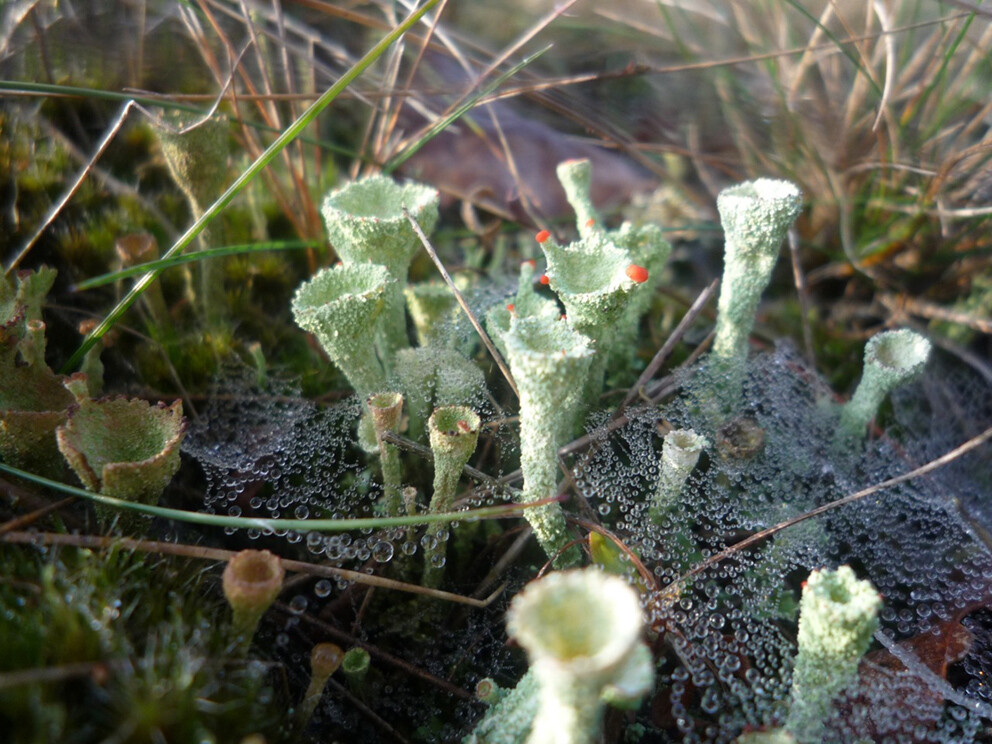Waarom Zoöp?
in de richting van een beeld dat draait om de wisselwerking tussen alle leven.
De klimaatcrisis en de degradatie van ecosystemen zijn het gevolg van een economisch systeem dat is gericht op het genereren van financiële winst op korte termijn voor private eigenaren, en op continue economische groei. In dit systeem wordt het anders-dan-menselijke leven vooral gezien als hulpbronnen die kunnen worden ingezet voor deze doelen. Dit economische kader ontwikkelde zich tegelijk met de moderne cultuur en bijbehorende rechtssysteem. Ze werken vanuit dezelfde logica van onderscheid tussen de menselijke wereld en de 'natuur'; de wereld van het anders-dan-menselijke leven. Mensen hebben het voor het zeggen en de 'natuur' is een verzameling grondstoffen voor menselijk gebruik, of op zijn best een achtergrond voor menselijke recreatie. Dit heeft geleid tot de huidige situatie van snelle afname van het vermogen van grote stukken van onze planeet om leven te ondersteunen.
Het herstellen van ecosystemen - ecologische regeneratie - is essentieel om de klimaatramp te verzachten en de kwaliteit van leven voor menselijk en meer-dan menselijk leven te bevorderen. Om dit herstel mogelijk te maken, moeten mensen leren werken vanuit een begrip van ‘deelname aan ecosystemen'. De belangen van het anders-dan-menselijk leven in de ecosystemen waar mensen aan deelnemen, moeten actief worden vertegenwoordigd in organisatorische processen, om betere samenwerking tot stand te brengen. De Zoöp werkwijze onderstreept de noodzaak om weg te bewegen van een wereldbeeld waarin de mens centraal staat, in de richting van een beeld dat draait om de wisselwerking tussen alle leven. De Zoöp beweging heeft als doel om een circulaire, regeneratieve economie te ontwikkelen, die gebaseerd is op symbiotische relaties tussen menselijke en anders-dan-menselijke deelnemers aan de levende wereld. Wij noemen dit een zoönomie.
Het Zoöp-model is geïnspireerd op ontwikkelingen op het gebied van de Rechten van de Natuur, met name door de erkenning van het Te Urewera-bos, Mount Taranaki en de Whanganui-rivier als rechtspersonen voor de Nieuw Zeelandse wet. De rol van de Spreker voor de Levenden is voor een belangrijk deel een vertaling richting de Europese context van de manier waarop de Maori Voogden hun bos, berg of rivier kunnen vertegenwoordigen als integrale menselijke deelnemers aan deze meer-dan-menselijke ecosystemen. De onderliggende waarden van het Zoöp model zijn vergelijkbaar met de notie van Pachamama in de Quechua culturen van Zuid-Amerika. Pachamama is iets als 'moeder natuur' of de levende wereld: een collectief lichaam war al het leven aan deelneemt, waar alle leven van afhankelijk is en waaraan het bijdraagt. Pachamama wordt erkend als rechtspersoon in de grondwet van Ecuador.
Vele individuen, collectieven, organisaties en zelfs enkele regeringen zijn zich bewust van het belang van ecologische regeneratie en van de noodzaak om te werken aan de transformatie van onze economische praktijk. De schaal van de issues en complexiteit van het werken binnen een systeem dat zelf een andere basis moet vinden, maken het moeilijk om vorm te geven aan een praktijk die een echt alternatief biedt. Het Zoöp model geeft organisaties praktische, toepasbare instrumenten en methoden waarmee ze zichzelf leren begrijpen als deelnemers aan grotere ecosystemen en die ze helpen een pad te vinden in de richting van het ondersteunen van de ecosystemen waaraan ze deelnemen. Het Zoöp model is gebaseerd op een wereldbeeld waarin mensen in samenwerking met andere soorten kunnen leren bijdragen aan gezonde ecosystemen, en het biedt een concreet, specifiek, realistisch en meetbaar proces om te werken aan ecologische regeneratie en de ontwikkeling van een economie die al het leven ondersteunt.
